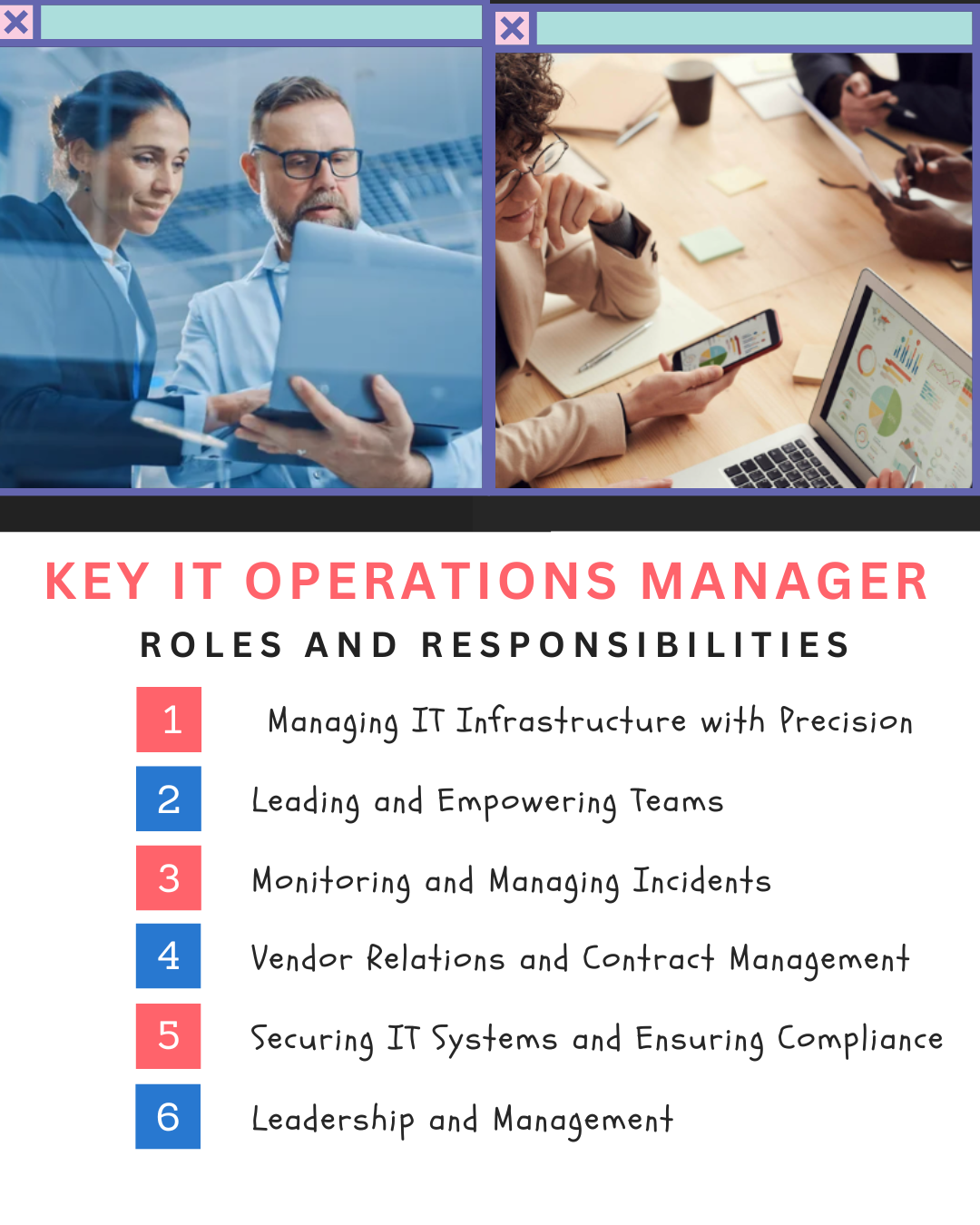What Does an IT Operations Manager Do? Essential Guide
KARAN

As you know, today your business is based on technology — be it for sending emails, managing sales transactions, etc. Just close your eyes and imagine your entire infrastructure collapsing all of a sudden. In a blink, the servers go down, your network is offline, and critical data is lost.
Panic sets in, right? That's what actually happens when IT systems flop — and that's when your IT Operations Manager steps in to save you from the chaos. They are the unsung heroes who work silently to ensure that everything remains normal.
What Does an IT Operations Manager Actually Do?
An IT Operations Manager is responsible for the smooth functioning of all technology systems in an organization. From overseeing networks and servers to managing the security and efficiency of every technical operation, this role ensures that your business’s IT infrastructure is always on point. Think of them as the captain of a ship, navigating the complexities of technology to keep everything afloat, even in turbulent waters.
However, the job goes beyond merely handling IT systems. An IT Operations Manager formulates a highly resilient IT ecosystem that drives the long-term success of a company — from reducing downtime and enhancing security to optimizing overall system performance and proactively managing challenges.

Key IT Operations Manager Roles and Responsibilities
Managing IT Infrastructure with Precision
- Oversight of IT Systems: Manage servers, networks, and cloud systems, ensuring they operate optimally, safely, and reliably.
- Downtime Prevention: With potential losses reaching up to $5,600 per minute (TechRepublic), maintaining continuous uptime is critical.
Leading and Empowering Teams
- Team Leadership: Orchestrate a team of IT professionals, setting clear goals and providing the guidance needed for success.
- Inspiration: According to Forbes, 65% of successful IT Operations Managers attribute their success to strong leadership skills.
Monitoring and Managing Incidents
- Real-Time Issue Resolution: Constantly monitor the system to detect and resolve issues such as network outages or server breaches before they escalate.
- Minimizing Impact: Ensure business operations continue with minimal downtime and cost.
Vendor Relations and Contract Management
- Third-Party Coordination: Build and maintain relationships with vendors for software, cloud services, and other IT solutions.
- Contract Oversight: Ensure all services and contracts align with company goals and are delivered as promised.
Securing IT Systems and Ensuring Compliance
- Cybersecurity: Implement robust security measures like firewalls, encryption, and routine audits.
- Regulatory Compliance: Ensure adherence to standards set by authorities such as GDPR and HIPAA.
Essential Skills for an IT Operations Manager
- Technical Expertise: Deep understanding of IT systems, networking, and cybersecurity to troubleshoot issues and safeguard the company.
- Leadership and Management: Ability to inspire, manage, and guide a team, setting clear goals and delegating tasks effectively.
- Problem-Solving: Quick decision-making to analyze issues, identify root causes, and implement effective solutions.
- Project Management: Oversee multiple projects simultaneously, ensuring timely completion of system upgrades and disaster recovery plans.
- Communication: Translate complex technical issues into clear, actionable insights for both technical and non-technical stakeholders.
Navigating the Challenges of an IT Operations Manager
- Budget Constraints: Operating within tight budgets requires resourcefulness to find cost-effective solutions without compromising system efficiency or security.
- Technological Advancements: Staying ahead of rapid technological changes, such as AI, cloud computing, and cybersecurity trends, necessitates continuous learning.
- Cybersecurity Threats: Constant vigilance and regular updates to security measures are essential to protect against increasingly sophisticated cyberattacks.
- Service Downtime: Prepare contingency plans to handle disruptions quickly, minimizing the impact on business operations.
Why You Should Consider Becoming an IT Operations Manager
If you are passionate about technology and want to make a real impact, becoming an IT Operations Manager might be the perfect career path for you. With technology at the center of modern business, IT roles are in high demand. According to the Bureau of Labor Statistics, IT management positions are expected to grow by 10% from 2020 to 2030.
Additionally, IT Operations Managers enjoy competitive salaries (with an average around $100,000 a year in the U.S.) and significant career advancement opportunities. Many eventually move up the corporate ladder to become Chief Information Officers (CIOs).
Start Your Journey with Unojobs
Ready to take the next step in your IT career? Whether you're just starting out or looking to expand your horizons, Unojobs connects talented individuals with innovative companies in technology, AI, and ML. Explore open job listings today to find your ideal match!
Conclusion
The role of an IT Operations Manager is crucial to the effective functioning of any organization. These professionals ensure that everything from IT infrastructure to security runs smoothly and securely. With a rising demand for skilled IT Operations Managers, this career offers exciting opportunities for those passionate about technology.
At Unojobs, we are committed to connecting you with opportunities that can jumpstart your IT career. Explore our job listings and take the next step toward the career you crave!
